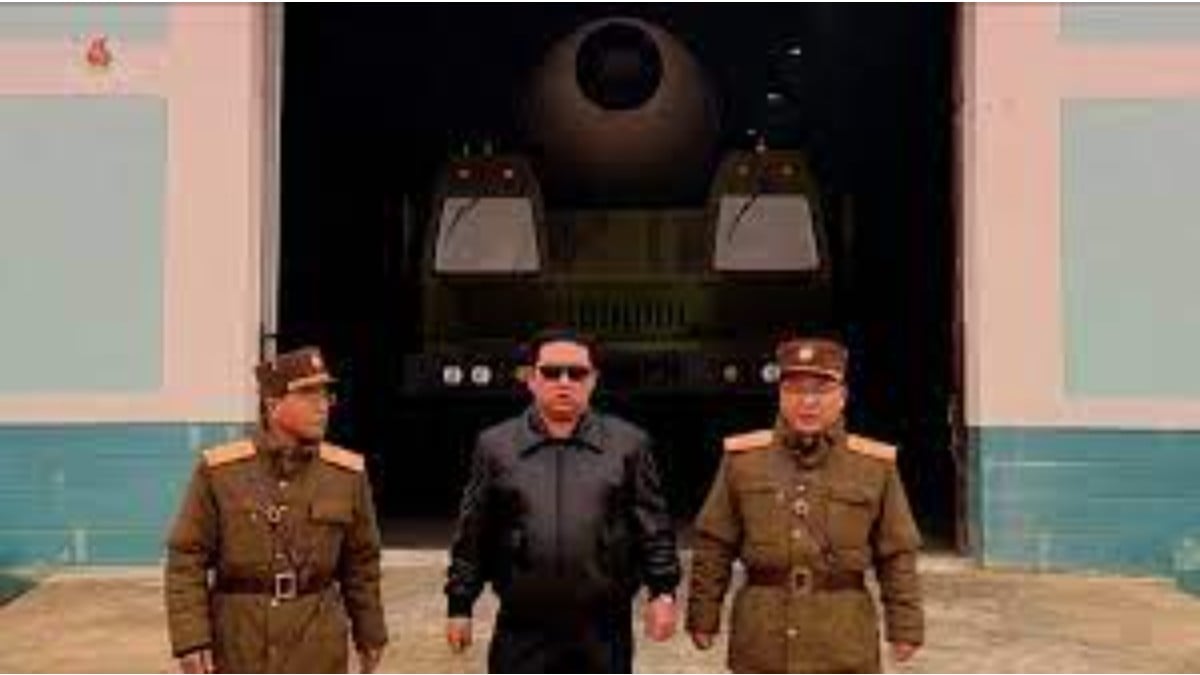South Korean President’s spokesman reveals details
In a major development, North Korean leader Kim Jong-Un has reportedly told South Korean President Moon Jae-in that he would close his country’s nuclear test site in May in full view of the outside world.
This was announced by Moon’s spokesman Yoon Young-Chan on Saturday, while briefing about the historical summit between the leaders of the two Koreas.
“Once we start talking, the United States will know that I am not a person to launch nuclear weapons at South Korea, the Pacific or the United States,” Yoon quoted Kim as saying.
The South Korean official further quoted Kim saying, “If we maintain frequent meetings and build trust with the United States and receive promises for an end to the war and a non-aggression treaty, then why would we need to live in difficulty by keeping our nuclear weapons?”
 Earlier North Korea’s state media has said, before the summit, that Pyongyang would immediately suspend nuclear and missile tests, scrap its nuclear test site and instead pursue economic growth and peace.
Earlier North Korea’s state media has said, before the summit, that Pyongyang would immediately suspend nuclear and missile tests, scrap its nuclear test site and instead pursue economic growth and peace.
South Korean President official residence known as Blue House has also confirmed Kim telling Moon that he would invite experts and journalists from the US and South Korea to ensure “transparency” of the dismantling of the facilities.
Read More: North and South come closer on Korean Peninsula
North Korean leader Kim Jon Un is expected to meet US President Donald Trump sometime in late May or early June this year.
According to Moon’s spokesperson, Kim has also expressed optimism about his meeting with Trump, saying the US president will learn he’s “not a person” to fire missiles towards the US.
Moon and Kim during the summit promised to work towards the “complete denuclearisation” of the Korean Peninsula. Though concrete measures were not outlined for ending the nuclear standoff, observers believe that clearer timeline would be revealed after Kim-Trump summit.
Earlier this month North Korea has announced it has suspended all tests of nuclear devices and intercontinental ballistic missiles and plans to close its nuclear testing ground.
Read More: US, China welcome N Korea halt on Nuclear, Missile tests
In a more symbolic gesture Kim has also revealed plans to re-adjust its current time zone to match the South Korea. North Korea had created its own “Pyongyang time” by setting the clock 30 minutes behind South Korea and Japan “to remove a legacy of Japanese colonial rule” in 2015.
Local time in South Korea and Japan is the same – nine hours ahead of GMT that was set during Japan’s rule over Korean Peninsula from 1910 to 1945.


 Earlier North Korea’s state media has said, before the summit, that Pyongyang would immediately suspend nuclear and missile tests, scrap its nuclear test site and instead pursue economic growth and peace.
Earlier North Korea’s state media has said, before the summit, that Pyongyang would immediately suspend nuclear and missile tests, scrap its nuclear test site and instead pursue economic growth and peace.















